The resignation of a third special aide to President Bola Tinubu last week has caused deafening silence in the atmosphere. Many observers are left mouth agape and some are wagging tongues over the development, speculating about a crack in president’s team. Hussaini Kafi, in Kano untangles the perplexing situation.
Resignation and Public Anxiety
For the third time in less than two years, a top aide in President Bola Ahmed Tinubu’s inner circle has stepped down—stoking public anxieties about deepening fractures within the Presidency and raising urgent questions about the direction of his administration.

The latest departure of Aliyu Audu, the Senior Special Assistant to the President on Public Affairs, follows the earlier resignations of Ajuri Ngelale, the President’s former spokesperson, and Hakeem Baba-Ahmed, a one-time political adviser. The trend suggests more than individual dissatisfaction—it points to a growing pattern of disillusionment at the very heart of government.
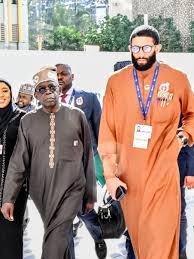
Audu’s resignation letter, submitted on June 8, 2025, through the President’s Chief of Staff, Femi Gbajabiamila, reads as both a personal conviction and a political indictment. He accused the administration of embracing authoritarian tendencies and warned against the shrinking democratic space, particularly referencing the alliance between President Tinubu and the Minister of the Federal Capital Territory, Nyesom Wike, as a move aimed at silencing opposition voices and consolidating power.

“I refuse to be used directly or indirectly as an instrument to reduce Nigeria to a one-party state,” he wrote. “That would be a betrayal of both divine favour and democratic principle.”
In another excerpt, Audu added: “If we now begin to silence or crush opposition simply because we have the upper hand, then we are no different from the very system we once criticised.”
Though respectfully worded, the letter’s tone made clear that Audu’s resignation was a moral and ideological protest against what he views as a betrayal of the administration’s original reformist promises.
A Presidency in Turmoil
The trio of high-profile resignations is difficult to dismiss as coincidence. Political observers have begun to read them as symptoms of a broader institutional dysfunction. According to a Kano-based political analyst, Mustapha Salisu the recurring exits point to a crisis of leadership and direction within the Presidency.
“These aren’t just career decisions—they are statements,” he said. “When political advisers and media strategists start jumping ship early in the life of a government, it tells you something is fundamentally wrong. The centre is not holding.”
Supporting that perspective is Hakeem Baba-Ahmed, who has become more vocal since his departure. Speaking during a televised interview, he declared that the Tinubu government had failed to lift Nigeria out of hardship or restore trust in leadership.
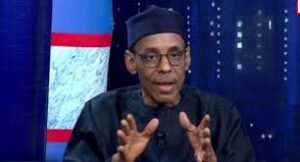
“Since 1999, every government has been worse than the one before it,” Baba-Ahmed said. “We thought we were escaping the failings of Jonathan and Buhari, only to land in a government that came in with a sense of entitlement and now seems more concerned with consolidating power than governing responsibly.”
Senator Ndume’s Stark Warning
The perception of disconnect between the Presidency and the people is not confined to aides alone. In a significant shift, Senator Ali Ndume, a staunch supporter of Tinubu and the current Chief Whip of the Senate, recently criticized the administration over continued insecurity and poverty in the North-East.
Speaking at a press conference in Maiduguri, Ndume painted a grim picture of the situation in Borno and surrounding states.

“People are still being killed in remote villages. IDPs are still in camps with no food or shelter. Where is the change we were promised?”
He went on to caution that hunger, displacement, and joblessness could lead to a wave of unrest if urgent steps are not taken.
“The government must listen. We cannot talk about growth or reforms when the people are starving and unsafe,” he added.
Ndume’s remarks mark a notable crack in the once-solid wall of political loyalty from the North-East, where Tinubu’s support had been seen as relatively secure.
A Kano-based humanitarian analyst told this reporter: “When watchdogs like AHR go silent, it’s not because there’s no news—it’s because the situation has become too dangerous or too bureaucratically locked down to report. That’s a red flag.”
Though no new official data was released in June, previous AHR investigations revealed that more than 1.3 million displaced persons in the Northeast live in subhuman conditions, with less than 15% having access to functional health services. Cholera, measles, and malnutrition were rampant, especially among children and pregnant women.
An expert familiar with the humanitarian scene described the government’s handling of the crisis as “a moral failure,” adding:
“This administration talks about reforms and macroeconomic stability while citizens are buried in poverty, illness, and insecurity. It’s the ultimate betrayal of governance.”
Kukah Speaks
Echoing these sentiments, Bishop Matthew Kukah recently issued a searing critique of the state of affairs under President Tinubu. Speaking at a public lecture in Abuja, the revered cleric accused the administration of overseeing an “epidemic of silence” while ordinary Nigerians suffer.
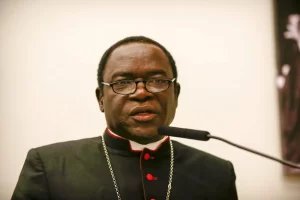
“We are governed by men who act like the poor do not exist. We shout about international ratings and economic reforms while millions go to bed hungry.”
His words hit home at a time when Nigeria’s inflation has soared to over 34%, and food insecurity has reached critical levels, according to recent data from the National Bureau of Statistics.
Wike, Tinubu, and the One-Party State for Fear
The alliance between President Tinubu and Minister Nyesom Wike—a former PDP strongman now functioning at the core of APC power—has raised red flags about Nigeria’s democratic health.
Aliyu Audu’s resignation letter directly criticized this alliance, suggesting it was part of a broader plan to undermine multi-party democracy in Nigeria.

A political observer in Kano noted: “This isn’t bridge-building; this is power consolidation. It’s about making the opposition irrelevant through absorption or suppression. That’s how democracies begin to die.”
Indeed, Wike’s influence in the FCT and his steady grip on administrative appointments and infrastructure projects have led many to believe that the PDP’s identity and independence are being eroded from within—a move that could have significant ramifications ahead of the 2027 general elections.
Voices from Kano: Betrayal and Despair
In Kano, often considered the political heartbeat of Northern Nigeria, citizens and analysts are growing increasingly vocal about their disillusionment.
Dr. Auwal Shehu, a Kano-based political expert, told this reporter:
“The North was promised security, empowerment, and national inclusion. What we’ve received is hunger, humiliation, and betrayal. These resignations only confirm what we already knew—that the government is running on fumes.”
At the grassroots, Hadiza Liman, a women’s rights organiser working with displaced families in Kano and Jigawa states, shared harrowing details: “Women in IDP camps are dying during childbirth without medical help. Some children are disappearing—trafficked or lost. And all Abuja can talk about is economic reform? This is not governance. It’s abandonment.”
Treading Dangerous Waters
The cumulative effect of these resignations, criticisms, and grassroots frustrations is a presidency under siege—not from opposition parties, but from within its own camp and from the people it vowed to uplift.
Political watchers say President Tinubu now faces the most serious test of his leadership so far. The resignation of aides like Aliyu Audu is not merely an internal personnel shift—it is a symbol of eroding trust within and outside government circles.
“If the President does not act decisively—through transparency, engagement, and course correction—his administration may begin to unravel from the inside,” warned another political strategist based in Kano.
Conclusion: A Nation at Crossroads
As the third resignation rocks the Tinubu administration, Nigeria stands at a dangerous crossroads. The symbolic and strategic importance of these resignations cannot be overstated. More than a loss of personnel, they represent a crisis of purpose and a warning shot from those closest to power.
If President Tinubu continues on this path—failing to address the internal grievances of his team, the suffering of his citizens, and the perception of political authoritarianism—his presidency may go down not for what it achieved, but for what it ignored.

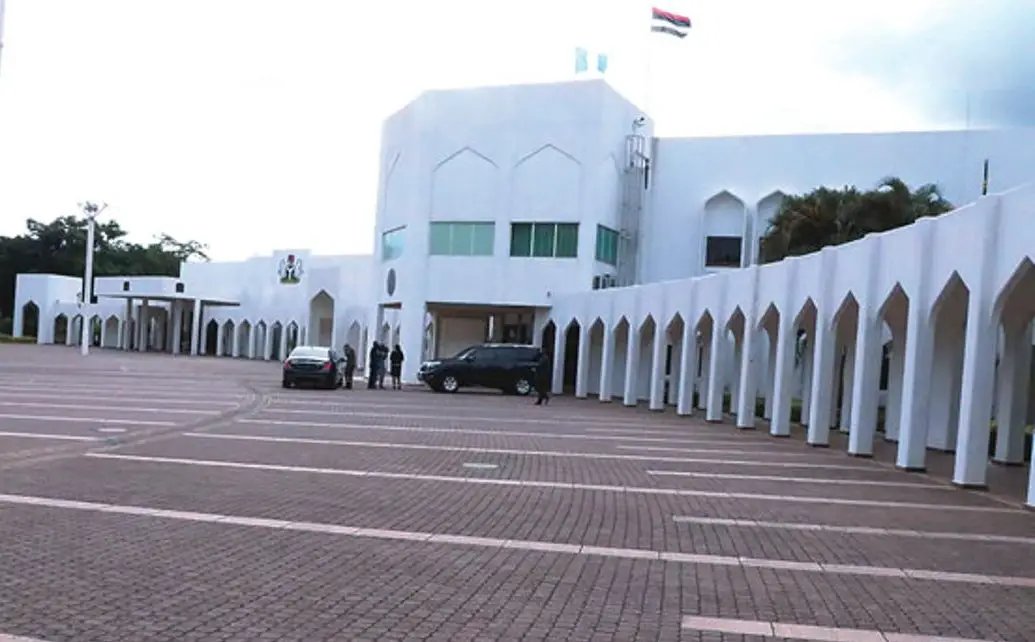
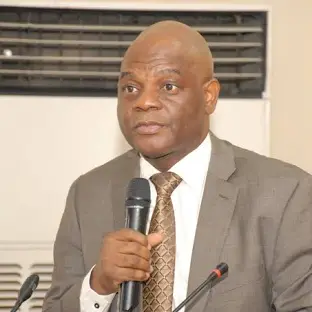
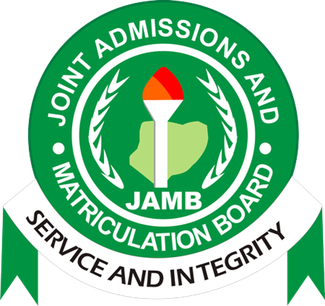
Bahçeşehir su kaçak tespiti Silivri su kaçağı tespiti: Silivri’de su kaçaklarına kalıcı çözümler sunuyoruz. https://sosyalanne.com/read-blog/5559